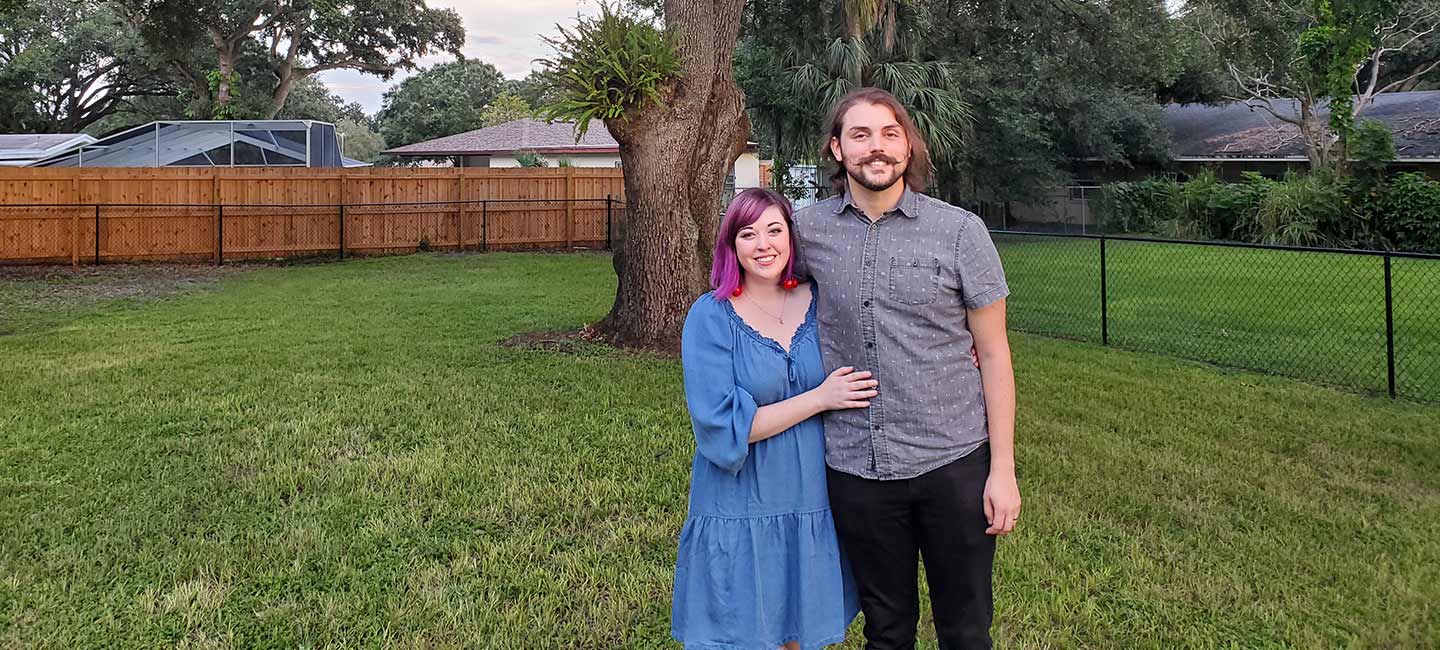FDA Approves 1st CAR T Therapy for Adults with Acute Lymphoblastic Leukemia
Most 17-year-olds going into their senior year of high school are thinking about their classes, friends and what the future holds after graduation. But for Branden Akens, his last few weeks leading up to the start of school in 2009 were atypical. He could tell something was off.
“I started feeling a little lethargic and was looking quite pale. People asked if I was anemic. I thought maybe that could be it. Then while shopping for school supplies, I noticed I couldn’t walk more than 5 yards without feeling winded and right before school started, I developed a fever,” said Akens.
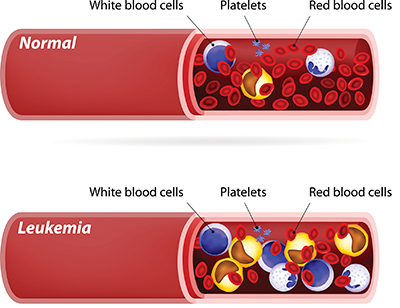
Patients with acute lymphoblastic leukemia have a build up of immature white blood cells.
His parents took him to a local Lakeland hospital where he was diagnosed with acute lymphoblastic leukemia (ALL). The most common childhood cancer, ALL starts from young white blood cells that are in the bone marrow called lymphocytes. These cells become the B cells and T cells that make up our immune system and help fight infection. In rare cases, immature lymphocytes can become rogue, mutate and crowd out healthy blood cells making it hard for the immune system to do its job. The word acute indicates that this process happens quickly.
Doctors referred Akens to Johns Hopkins All Children’s Hospital where he underwent a chemotherapy and steroid regimen that led to remission. He graduated from high school and went on to the University of Central Florida. But in 2015 when he was starting the school’s graphic design program, his health took a turn. The leukemia had come back. Because he was an adult, Akens was referred to Moffitt Cancer Center. Dr. Bijal Shah, a medical oncologist in the Malignant Hematology Department, recommended a bone marrow transplant.
“The bone marrow transplant was a lengthy process. Three months total. We had to be at the hospital for a while so I could prepare for the procedure, then we had to stay nearby for at least a month so I could be monitored,” said Akens.
His girlfriend, now wife, Crystal, was with him throughout the process. “I didn’t want to miss a moment with him. This was someone I saw myself being with for the rest of my life. After that first appointment with Dr. Shah, I went out, bought a ring and proposed to Branden,” she said.
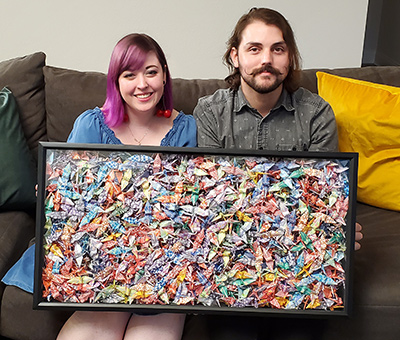
Crystal and Branden Akens show the 1,000 paper cranes folded during his hospital stay for his bone marrow transplant.
During their time in the hospital, Crystal Akens folded 1,000 paper cranes as a wish for good health. In Japanese culture, it is believed anyone who folds a thousand origami cranes will be granted a wish by the gods. The cranes now reside in a shadowbox that is displayed in their living room.
The bone marrow transplant was a success, but after roughly two years in remission, the leukemia came back again. This time, Branden Akens recalled, the disease presented itself differently.
“I had what felt like a bone spur in my wrist and different muscular aches and pains,” he said.
Doctors tried radiation, but the residual disease was not going away. That is when Shah offered him two options: more chemotherapy followed by a second bone marrow transplant or enrollment in a clinical trial using a new cellular therapy called chimeric antigen receptor T-cell therapy (CAR T) to treat the disease.
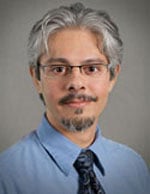
Dr. Bijal Shah, Medical Oncologist, Malignant Hematology Department
“For this therapy, we take a patient’s own T cells and genetically modify them so they can now recognize the leukemia. An antibody is built into the T cells that can communicate with it, so it can see and kill the cancer,” said Shah.
CAR T cells do not come without side effects. Some patients can experience a high level of inflammation or temporary mental and neurological effects as the CAR T cells work, but these can often be managed.
While Shah gave him time to think about it, Branden Akens said he knew almost immediately that CAR T was the right choice for him. “I’m an optimistic person. I knew being young, I could get through the therapy and the thought of one single infusion and only being in the hospital for a short time sounded good,” he said.
The cellular therapy treatment was a success. Branden Akens said surprisingly he did not experience any of the severe side effects that can accompany the treatment. He has been in remission for almost five years. During that time, he finished college, got married and bought his first home.
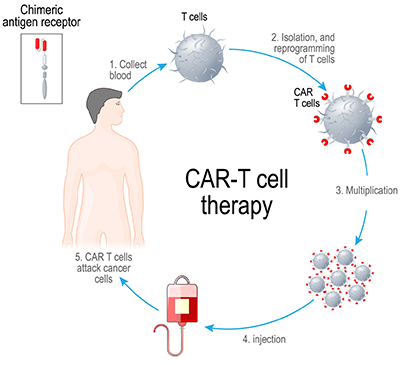
CAR T-cell therapy uses a patient's own reprogrammed immune cells to fight cancer.
The CAR T therapy he received, TECARTUS®, was just approved by the U.S. Food and Drug Administration for the treatment of adults with ALL. The clinical trial Branden Akens participated in showed remarkable results.
“Seventy-one percent of patients had a complete response to this treatment and over half the patients had true complete remissions,” said Shah, who was the principal investigator for the study. “We are looking forward to being able to offer this to even more patients.”
Branden Akens says he has finally gotten to the normalcy he has been striving for. “The puzzle pieces have come into place. I have a new lease on life. The worry of disease coming back isn’t there anymore,” he said.
He also offers this advice to patients who are given the option of CAR T-cell therapy: “Don’t focus on the negatives that could happen with the treatment. Stay positive and focus on how this will get you through to the next chapter of your life.”


